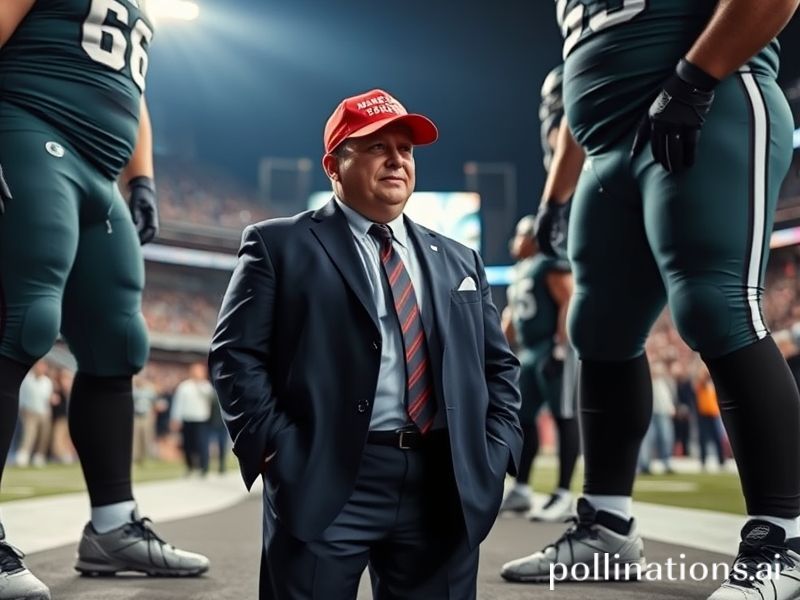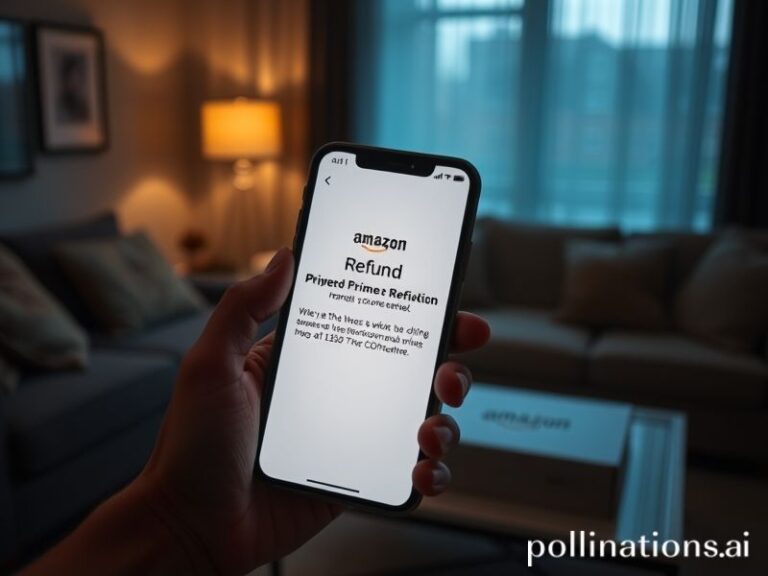Exporting the End Zone: How ‘NFL Charlie Kirk’ Became the League’s Global Placeholder
NFL Charlie Kirk and the Curious Case of the Global Gladiator
If you type “NFL Charlie Kirk” into a search bar, the algorithm shrugs, coughs up a picture of the conservative podcaster in a suit, and then—because it’s a helpful little idiot—throws in a highlight reel of whichever linebacker happens to share the surname. Somewhere between the two results lies the real story: a collision of American spectacle, global branding, and the faint smell of burning money that drifts across oceans whenever the National Football League tries to convince the rest of the planet that shoulder pads are the future.
Let’s start with the obvious. Charlie Kirk, the bow-tied culture-warrior who could sell sand to the Sahara if it came wrapped in a meme, has never played a down of professional football. Yet the phrase “NFL Charlie Kirk” trends whenever the league’s marketing department decides Europe, Asia, or the moon needs more red-zone graphics. The implication is that the NFL wants a Charlie Kirk—any Charlie Kirk—so long as he can be Photoshopped into a London fog or a Tokyo subway ad, clutching a pigskin and grinning like he just discovered tax-exempt status.
Why does this matter beyond the fifty-yard line of American self-obsession? Because the NFL’s overseas expansion is less about sport than about soft-power laundering. Every regular-season game in Munich or Mexico City is a taxpayer-subsidized embassy, complete with fighter-jet flyovers and enough flag-waving to make even the most jaded diplomat reach for a second passport. The league has learned what Hollywood knew decades ago: if you can export testosterone in HD, you don’t need to export democracy; people will queue for the merch either way.
Enter the ghost of Charlie Kirk—the perfect placeholder for a franchise that insists it’s universal while remaining stubbornly parochial. The NFL doesn’t need a real Charlie Kirk; it needs the *idea* of him: a telegenic mouthpiece who can recite “freedom” in seven languages without ever quite translating what that freedom costs. The league’s international partners are happy to play along. German stadiums roar on cue; South Korean broadcasters splice in K-pop cameos between tackles. Everyone pretends the concussion protocols are merely a quaint American eccentricity, like tipping or mass shootings.
Meanwhile, the rest of the globe watches the spectacle with the same polite curiosity reserved for a neighbor who insists his backyard wrestling league will someday rival the Premier League. Sure, the production values are slick, the slow-motion replays hypnotic, and the cheerleaders appear to have been engineered in a Swiss lab specializing in dental symmetry. But there’s always the lingering question: why does a country that already dominates the world’s attention economy feel compelled to annex our Sunday afternoons too?
The answer, as ever, is money—and the darker joke is that even the money is theoretical. NFL International’s balance sheet resembles a cryptocurrency white paper: lots of bullish projections, very few receipts. The league claims its UK fan base has doubled every five years, a metric suspiciously similar to the growth curve of my cousin’s sourdough starter during lockdown. Still, broadcast rights get sold, jerseys fly off virtual shelves, and somewhere in a glass tower Roger Goodell updates his LinkedIn profile to “Global Visionary.”
Back home, the original Charlie Kirk continues to tweet about the woke mob ruining everything from breakfast cereal to the infield fly rule. His digital shadow, however, has already been franchised abroad: a faceless avatar wearing number 1776, ready to be skinned onto the next marketable linebacker who can spell “freedom” without tripping over the silent letters. The joke, if you’re in the mood for gallows humor, is that the rest of us are footing the bill—whether through streaming subscriptions, municipal stadium subsidies, or the slow erosion of whatever local pastime once filled the gap now occupied by third-and-long.
In the end, the global significance of “NFL Charlie Kirk” is precisely its insignificance: a placeholder for a spectacle so bloated it requires fictional ambassadors to keep the myth alive. Somewhere on a dusty pitch in Nairobi, kids still play football with a ball made of plastic bags. They don’t need Charlie Kirk, or the NFL, or a flyover to tell them what sport looks like when the cameras are off. The league, of course, is already planning a preseason game there—pending construction of a suitable taxpayer-funded coliseum.







